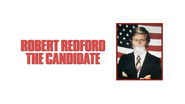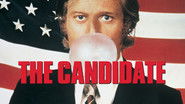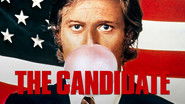bigverybadtom
I was shown this in social studies class in my senior year in high school decades ago. The liberal teacher used the movie to teach us how real-life political candidates are developed, and he asked us questions such as whether debates were truly useful except as publicizing candidates.The story itself: Bill McKay, son of a former machine politician governor of California, is talked into running for the Democratic candidate for U. S. Senator by a campaign manager who has just come off a losing election of another candidate. The manager expects McKay to lose anyway, so he tells McKay to say whatever he wants since it won't make any difference.But as the campaign goes on, the supposedly strong incumbent is vulnerable after all, and McKay wins the Democratic primary, and there is a serious chance McKay could really win the election. No longer can he just say what his beliefs are; he now has to draw in more voters who don't want a strong liberal. Solution: McKay has to be much more vague in answering questions (as directed by his managers), and to give generalized platitudes even his campaign team laugh at. He talks about unity and solving problems-but at the same time fails to tell the public what he intends to do about them. He wins anyway-and is confused as to what to do once he has the job.While it is true that an empty suit can win an election (look at who our current President is), the movie's inherent problem is that the movie doesn't really give a reason that McKay should have won over the incumbent. Longtime incumbents normally lose if demographics change greatly or if they alienate their constituency in some way; the movie depicts nothing of the sort. Also, McKay shows little enthusiasm for running throughout the whole campaign; surely there are others who would have wanted the spot instead? Still, if nothing else, the best part of the story was where the campaign manager is told to take a chair-and he does so, literally.
James Hitchcock
"The Candidate" is a film which has something in common with Sidney Lumet's "Power" from the following decade. Both films look at the role played by political consultants, what would today be called "spin doctors", in the American electoral process, and both were made at a time when there was a popular conservative Republican in the White House, Nixon in 1972 and Reagan in the eighties. (Prior to the Watergate scandal, Nixon was highly popular, as indicated by his landslide win in that year's Presidential election). One difference between the films is that in "Power" more attention is paid to the personality of the spin doctor, whereas here it is the candidate himself who is at the centre. The film tells the story of a campaign for a Senate seat in California, currently held by another popular conservative Republican, Senator Crocker Jarmon. The Democratic candidate is Bill McKay, an idealistic, charismatic and politically liberal lawyer. Much of the film deals with the relationship between McKay and his spin doctor Marvin Lucas, who endeavours to persuade McKay to tone down his radical rhetoric, especially on controversial issues like abortion and school bussing, and to make himself a bland, centrist candidate, all things to all men. The script was written by Jeremy Larner, who had been a speechwriter for the liberal Senator Eugene McCarthy during the 1968 Presidential election campaign, so was presumably made with a liberal agenda in mind. It seems, however, to have ended up as one of those films which were ostensibly made from a liberal standpoint but which are just as capable of being interpreted in a conservative, or at least a centrist, fashion. (Others that come to mind include "High Noon" and "Seven Days in May"). Larner may have intended an indictment of the way in which the US political system discourages genuinely radical debate of issues such as poverty and race relations. The storyline, however, in which McKay comes back from a seemingly hopeless position to win the race, could also be interpreted as a warning that the Democrats must abandon radicalism and seek out the centre ground if they are to win elections. (If that was indeed the film's message, it was sadly lost on George McGovern, their candidate for President that year). Of course, Larner had put himself in a difficult position; had he written an ending in which Jarmon won the election, some might have seen this as an endorsement of conservative Republicanism. The film is made in a rather dry, semi-documentary style, concentrating more on political debate than on personal issues. There is a suggestion that McKay, a married man, may be having an affair with another woman, but this issue is given far less prominence that it would be in most political dramas. The personal relationship which is given most prominence is the rather difficult one between McKay and his more conservative father John, a former State Governor, who is initially reluctant to endorse his son's campaign. McKay is played by Robert Redford, one of Hollywood's most prominent liberals and a huge star in the seventies, but he cannot do much with the role; McKay comes across as little more than a handsome, charismatic mouthpiece for a set of ideas, some of which are not really even his own. Peter Boyle as Lucas and Don Porter as Jarmon are rather better, but to my mind this is a film which never really comes to life. Some of the issues have a certain modern resonance; many of Jarmon's speeches, for example, would go down well with the current "Tea Party" movement. Overall, however, my impression was that, while "The Candidate" may have been controversial in 1972, today is just comes across as a dull debate about the politics of forty years ago. "Power" has its faults, but it has held up rather better as an examination of the role of the spin doctor. 5/10
vincentlynch-moonoi
"The Candidate" was the second film in which I saw Robert Redford; the first was "Jeremiah Johnson". Both were released in 1972. And I knew from the moment I saw this film that Redford was something special.40 years, and at the base level, it's clear that politics hasn't changed too much. Yes, there's a lot of big money involved now, but the basics of candidate and voter is about the same...except less vitriol.There's not exactly a plot here. It's more a story of a political pro attempting to make a modern "do-gooder" into his candidate. Redford plays an idealistic community organizer who doesn't really want to be senator, but goes along with it and then gets wrapped up in it. Not a plot, but a story about relationships and the evolution of a candidacy.It's interesting to see some old familiar faces -- Natalie Wood, Howard K. Smith, and others.Redford is superb. But then again, he almost always was. This was probably one of Peter Boyle's best roles, and Allen Garfield was impressive, as well. Melvyn Douglas was a pleasure to see in his role as the candidate's father. And Don Porter showed his versatility in playing the old favorite Republican candidate.It's hard to find a negative in this film. It's worth watching and perhaps having on your DVD shelf.
Michael Neumann
Jeremy Larner's brilliant, behind-the-scenes look at a modern political campaign and the marketing experts who make them work stars Robert Redford as an anti-politics California liberal reluctantly drawn into a race for the U.S. Senate with the naive hope of actually making a difference. He discovers, too late, that government isn't about issues or representation, but about exposure and packaging, marching bands and American flags; in other words, all the empty flotsam which, years later, now seems to mark the entire political process. The early '70s fashions are badly dated, but the film itself is more incisive than ever, showing how campaign attitudes, and sometimes even the actual speeches, haven't changed at all since 1972. Director Michael Ritchie reinforces the near-documentary authenticity by enlisting celebrities to portray themselves, from Natalie Wood to Mike Wallace. In 1988 the film was named by then Vice Presidential candidate Dan Quayle as a career influence, despite his obviously having missed the point of it entirely.
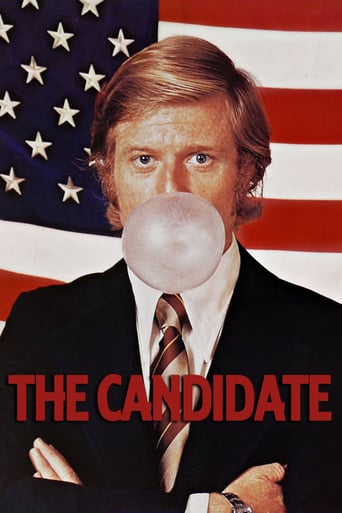
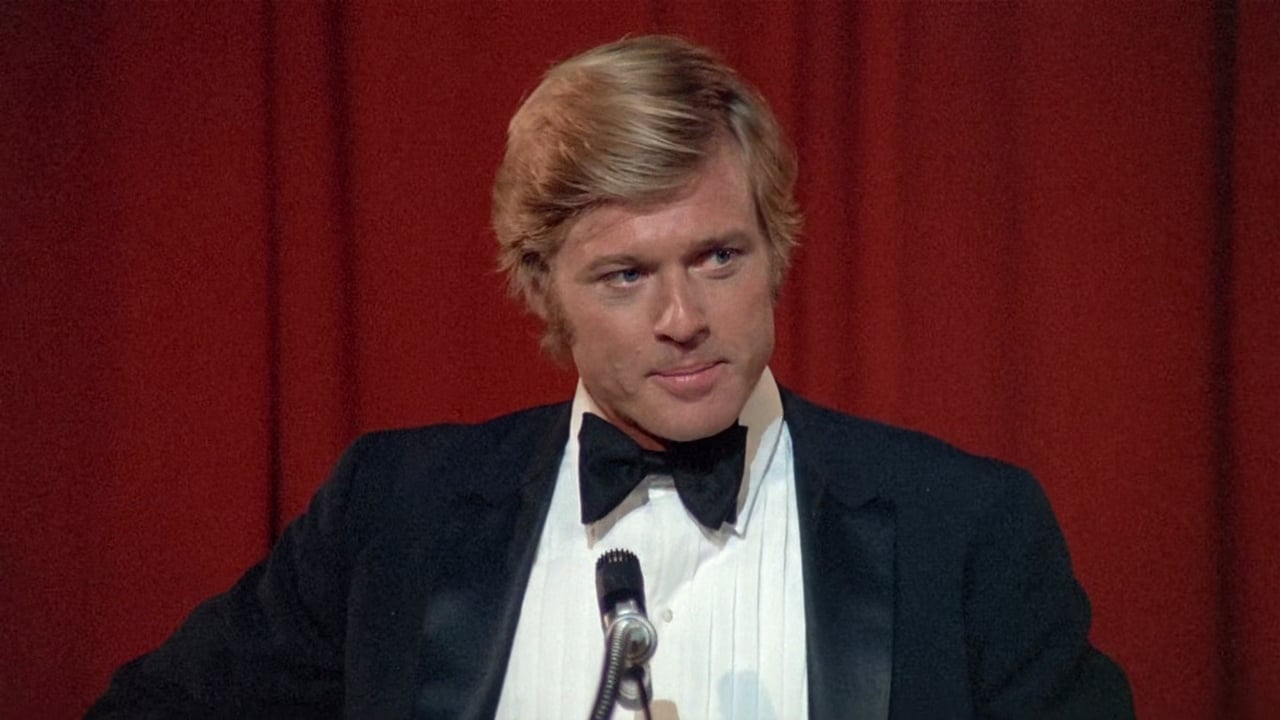

 AD
AD






